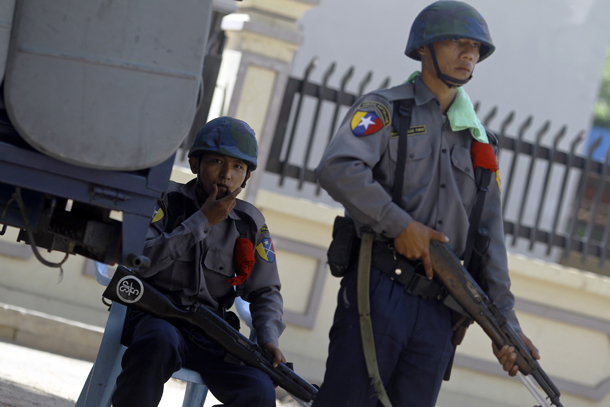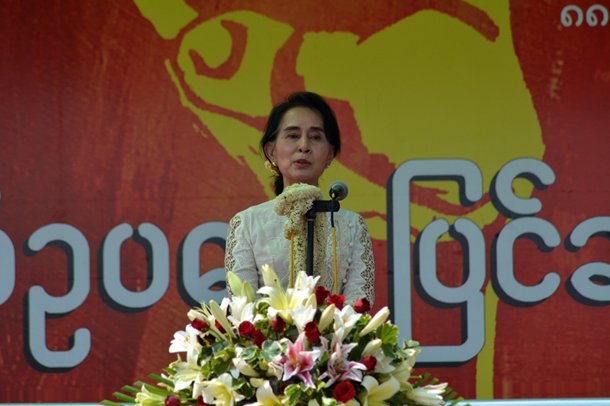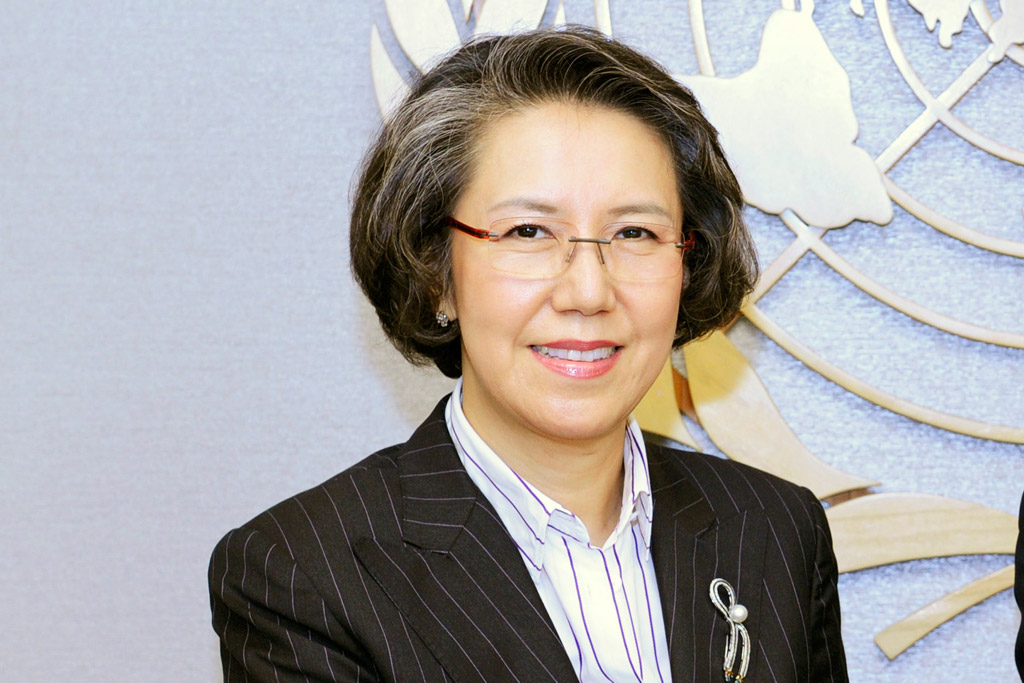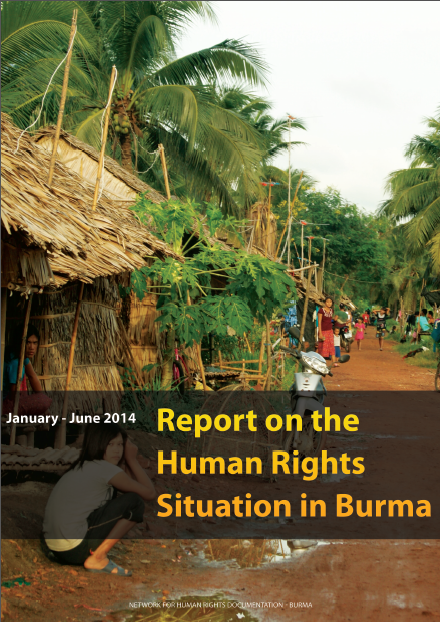Posts Tagged ‘Human Rights Violations’ (349 found)
Burma: Ongoing Judicial Harassment and Arbitrary Detention of Htin Kyaw, Tin Maung Kyi and Zaw Win
The Observatory for the Protection of Human Rights Defenders, a joint programme of the International Federation for Human Rights (FIDH) and the World Organisation Against Torture (OMCT), has received new information and requests your urgent intervention in the following situation in Burma […]
• • •Ministry Of Defence Broke Law Delaying Disclosure Of Burma Military Training Details
The Information Commissioner’s Office, which monitors adherence to the Freedom of Information Act 2000, has issued a decision notice that the Ministry of Defence breached the Freedom of Information Act by failing to disclose details of military training being given to the Burmese Army […]
• • •Reform of the Police and the Judiciary is a Matter of Urgency
 Over recent weeks, there has been a spate of unprovoked attacks by the Burma Police Force on peaceful, innocent civilians. On 14 August, nearly 50 police personnel in Mandalay Region shot at a group of around 200 farmers from Nyaung Wine Village, Singu Township. According to the Asian Human Rights Commission (AHRC), a 30-year-old mother of two, Ma San Kyin Nu, is allegedly one of the victims, and has been admitted to Mandalay General Hospital for urgent medical treatment as a result of her injuries. The farmers were protesting against the fact that over 6,000 acres of their land was confiscated in 1991 by the 121 Logistic Battalion of the Burma Army – without any compensation being provided – by continuing to plough their fields.
Over recent weeks, there has been a spate of unprovoked attacks by the Burma Police Force on peaceful, innocent civilians. On 14 August, nearly 50 police personnel in Mandalay Region shot at a group of around 200 farmers from Nyaung Wine Village, Singu Township. According to the Asian Human Rights Commission (AHRC), a 30-year-old mother of two, Ma San Kyin Nu, is allegedly one of the victims, and has been admitted to Mandalay General Hospital for urgent medical treatment as a result of her injuries. The farmers were protesting against the fact that over 6,000 acres of their land was confiscated in 1991 by the 121 Logistic Battalion of the Burma Army – without any compensation being provided – by continuing to plough their fields.
After the police violence, the protesting farmers prevented police from making any arrests; however, later, another 100 police arrived and blockaded the entire village. Local residents then took matters into their own hands and briefly detained about 40 police officers, angered at the brutal approach of the police to the land conflict. Although the policemen were eventually released after negotiations, the dangers and risks of uncontrolled police violence and impunity are evident: blood has been shed and anarchy has prevailed. Even if police allegations that the protestors were armed with slingshots is true, under no circumstances is the use of live ammunition by police or other state security forces on civilian protestors proportionate or justified.
Furthermore, on 14 May, All Burma Federation of Students Union (ABFSU) member Kaung Htet Kyaw was beaten by police during a suppression of a farmers’ protest in Thegon Township in Pegu Region. Kaung Htet Kyaw sustained severe head injuries. ABFSU responded by releasing a statement denouncing police mistreatment [..]
• • •January – June 2014: Report on the Human Rights Situation on Burma
The Network for Human Right Documentation-Burma (ND-Burma) is an organization that documents and reports human rights violations taking place throughout Burma. We are a watch-dog for human rights violations and are continually monitoring the human rights situation in Burma.
This report covers the first period of 2014 and focuses on 103 documented cases of human rights violations in Burma from January-June 2014. There are many serious human rights violations addressed and highlighted in this report, including: torture, extra-judicial killing, illegal arrests and detention, arbitrary taxation, property crimes, forced labor, human trafficking, forced displacement and rape.
Even though President U Thein Sein promised to release all political prisoners by the end of 2013, there are still many political prisoners in Burma, including new detainees in 2014. Many human right defenders and activists have been arrested under the Unlawful Association Act of 1908, Section 5 (e) and 5 (j) of the Emergency Provisions Act, and Section (18) of the Right to Peaceful Assembly and Peaceful Procession Act. For example, U Win Cho and U Nay Myo Zin were arrested under Section (18) for protesting the confiscation of land in Kyauk Ta Dar Township, Yangon. Moreover, innocent Kachin IDPs were arrested under Section (17) of the Unlawful Association Act for suspected contact with ethnic armed groups. These actions reinforce the fact that the government in Burma is still willing to use oppressive and unjust laws against the Burmese people […]
• • •New report by Network for Human Rights Documentation-Burma (ND-Burma) Documenting On-going Human Rights Abuses in Burma
ND-Burma has published its periodic report covering the first half of 2014, focusing on 103 documented cases of human rights violations in Burma from January to June, 2014. There are many serious human rights issues highlighted in this report: torture, extra-judicial killing, illegal arrests and detentions, arbitrary taxation, property crime, forced labor, human trafficking, forced displacement and rape […]
• • •Political Opposition in Burma Must Ignore Distractions and Focus on Policy
 The main opposition party in Burma, the National League for Democracy (NLD), said last week that almost 5 million people signed the petition calling for constitutional reform that did the rounds from 27 May to 19 July. The petition pushed for the removal of the Burma Army’s veto on constitutional change that they have by virtue of Article 436 of the Burma Constitution. This campaign has been widely praised as a shrewd tactical move, because it would in theory unlock the door to amendments of any offending articles of the Burma Constitution that undermine democratic values and infringe upon the fundamental rights of the people. Most notably – though by no means exclusively, as the NLD and others are at pains to stress – amendment of Article 436 will in turn enable amendment of Article 59(f), which in practice bars Daw Aung San Suu Kyi running for President in the 2015 elections.
The main opposition party in Burma, the National League for Democracy (NLD), said last week that almost 5 million people signed the petition calling for constitutional reform that did the rounds from 27 May to 19 July. The petition pushed for the removal of the Burma Army’s veto on constitutional change that they have by virtue of Article 436 of the Burma Constitution. This campaign has been widely praised as a shrewd tactical move, because it would in theory unlock the door to amendments of any offending articles of the Burma Constitution that undermine democratic values and infringe upon the fundamental rights of the people. Most notably – though by no means exclusively, as the NLD and others are at pains to stress – amendment of Article 436 will in turn enable amendment of Article 59(f), which in practice bars Daw Aung San Suu Kyi running for President in the 2015 elections.
While such a public initiative is to be applauded, and the weight of support for the petition is to be welcomed, the political opposition in Burma must not allow itself to be distracted by such diversionary machinations on the part of the Burma Government and the ruling Union Solidarity and Development Party (USDP). The NLD is right that constitutional reform is essential to the establishment of genuine democracy in Burma. However, it is also time for the political opposition to test the limited democratic space that now exists in Burma, and time to start outlining a viable policy platform for government. The burden rests with the NLD and other democratic opposition parties to engineer a seismic cultural and political shift: away from politics traditionally centred on personalities and fear, and towards politics based on actual policies that will resolve people’s grievances and promote and protect their political, economic, social and cultural rights.
• • •Press Release on John Kerry’s Visit to Burma
Just days before US Secretary of State John Kerry is due to visit Burma, more than 100 security forces came to the Rohingya IDPs camp in Thandawlee village in Sittwe, capital of Arakan State, and killed one Rohingya and seriously injured two others. More than 15 Rohingyas were arrested by security forces. At the same time, Rohingyas in Buthidaung and Maungdaw, in northern Arakan, have been arrested, threatened and harassed while the government attempts to collect population data […]
• • •New Special Rapporteur, Familiar Human Rights Abuses
 The new Special Rapporteur on the situation of human rights in Burma, Ms. Yang Hee Lee, concluded her first visit to the country on 27 November, and unsurprisingly, found the human rights situation troubling, warning of the potential of backtracking on initial reforms, an analysis that resonates with many Burma followers. She outlined her initial findings at Rangoon airport in a statement just as she finished her mission, highlighting the shrinking of democratic space, the ongoing religious violence and discrimination, the deteriorating humanitarian conditions for internally displaced persons (IDPs) – especially Muslims – in Arakan State, the severe human rights abuses in Kachin State, the urgent necessity for legislative reform and the rule of law, the lack of involvement of women in both the peace process and governance, the exclusion of local people in large scale development projects and the impact of such projects on vulnerable communities, and the continuing incarceration of political activists, among other issues.
The new Special Rapporteur on the situation of human rights in Burma, Ms. Yang Hee Lee, concluded her first visit to the country on 27 November, and unsurprisingly, found the human rights situation troubling, warning of the potential of backtracking on initial reforms, an analysis that resonates with many Burma followers. She outlined her initial findings at Rangoon airport in a statement just as she finished her mission, highlighting the shrinking of democratic space, the ongoing religious violence and discrimination, the deteriorating humanitarian conditions for internally displaced persons (IDPs) – especially Muslims – in Arakan State, the severe human rights abuses in Kachin State, the urgent necessity for legislative reform and the rule of law, the lack of involvement of women in both the peace process and governance, the exclusion of local people in large scale development projects and the impact of such projects on vulnerable communities, and the continuing incarceration of political activists, among other issues.
We welcome Ms. Lee’s open and honest discussion of the term “Rohingya” and her pledge to be guided by international human rights law as regards the use of this term. This was despite the insistence of government officials not to use the word “Rohingya” throughout her trip to Arakan State. On the basis of this principled stance, we are reassured that Ms. Lee will not flinch from using the term when appropriate in the future. After visiting two camps for IDPs, one for Arakan Buddhists and one for Rohingya Muslims, Ms. Lee was troubled by both the terrible conditions in the camps and the lack of humanitarian access that is resulting in people dying due to insufficient medical assistance. She also acknowledged that this situation is “undeniably worse” in the camp for Rohingya. While she did not explicitly state that this is a situation engineered and maintained by the authorities, it is obvious that the unequal treatment of Buddhist and Muslim IDPs is a deliberate policy by the government that further punishes the Rohingya simply due to their ethnicity.
• • •Statement on Repatriation of Refugees from the Thai–Myanmar Border
The Asia Pacific Refugee Rights Network (APRRN), a growing network of 194 organizations and individuals from 26 countries, expresses its grave concern over the recent announcement by the Royal Thai Government regarding the repatriation of refugees living on the Thai – Myanmar border back to Myanmar (Burma). While the announcement does not specify a particular date for repatriation, the intent of the announcement does raise serious humanitarian concerns […]
• • •











 All posts
All posts